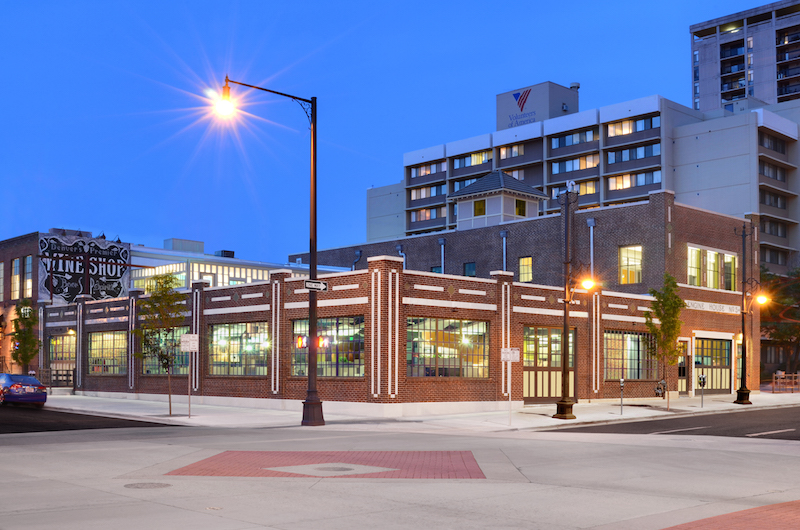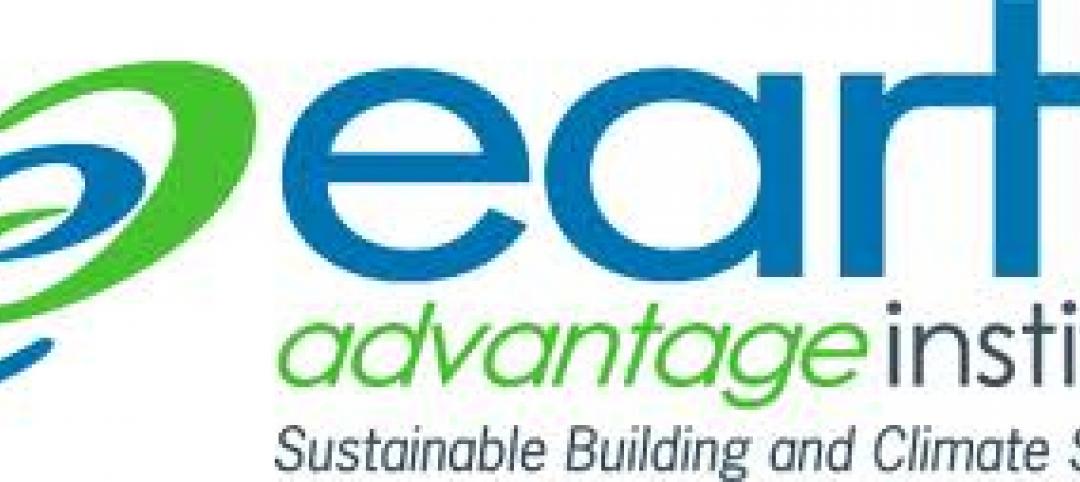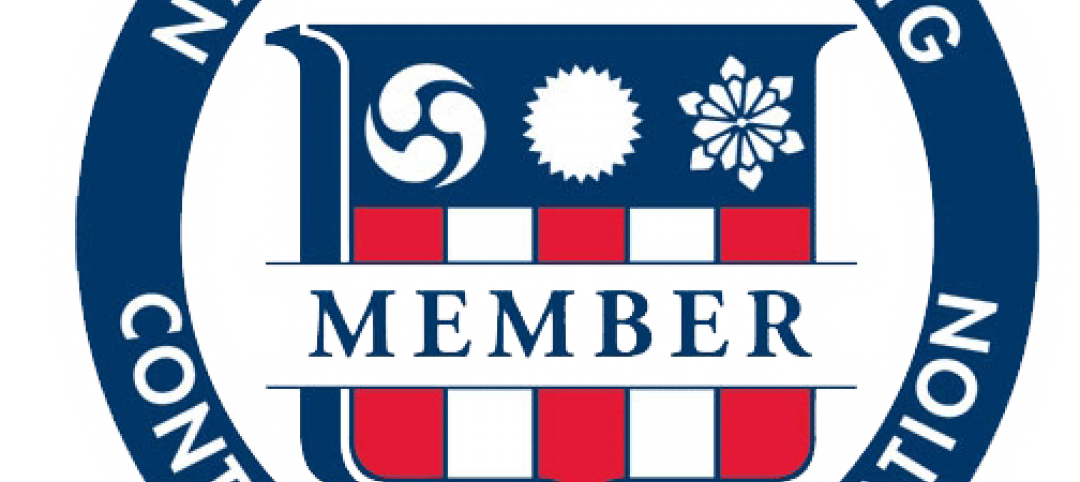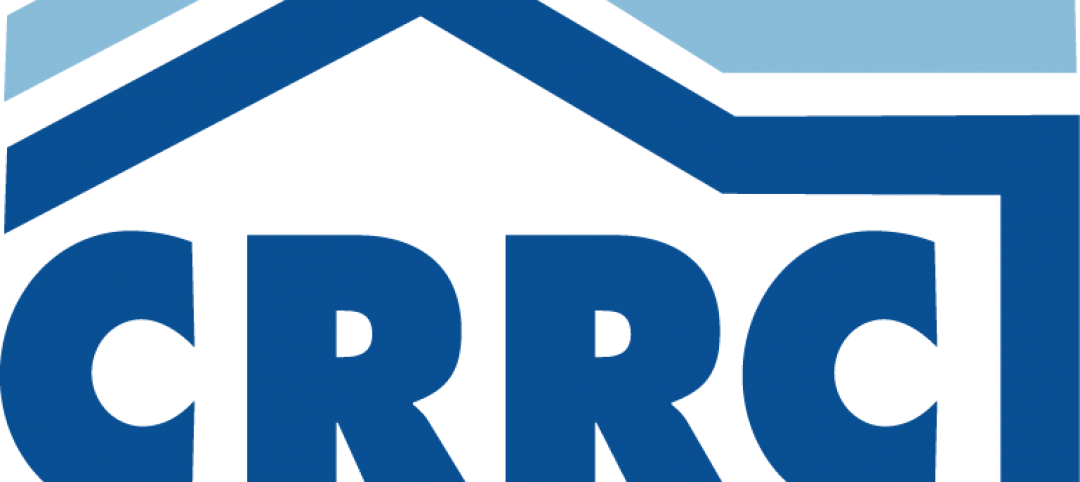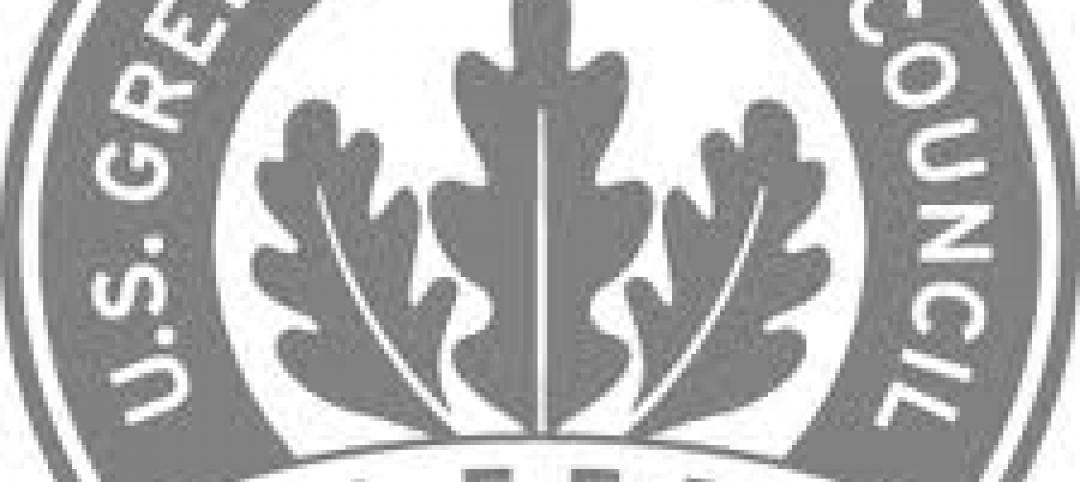The architectural firm Hord Caplan Macht (HCM) recently completed the documentation to verify that its Denver office can meet the standards necessary to be certified under Fitwel, a certification program to support healthier workplaces created by the Centers for Disease Control and Prevention. The Center for Active Design, Fitwel's oerator and third-party certifier, launched in May 2016 and began rolling out to developers and the AEC community last fall.
Working with experts in public health and design, CDC spent five years developing and testing its Fitwel scorecard. The General Services Administration piloted the program in 89 of its buildings.
HCM, which has also provided verification documents for its offices in Alexandria, Va., and Baltimore, is one of five Fitwel Champions that have committed to certifying more than 50 buildings in aggregate. The other Champions include the CDC, which is also Fitwel’s research and evaluation lead; EYP, Integral Group, and Menkes Development.
Perkins+Will was the first company to adopt Fitwel’s standards for all 11 of the firm’s North American offices, which P+W expects will be certified by 2018.
HCM has been in its 13,000-sf Denver office, a former fire station built in the 1920s, since 2010. The office currently has 72 employees. Ara Massey, that office’s Sustainability Design Manager, tells BD+C that the firm measured its three offices against 63 Fitwel strategies in seven health impact categories to establish health and wellness baselines from which it could work toward certification. The evaluation and documentation took about 40 man-hours, she estimates.
The Center for Active Design promotes Fitwel as more “business friendly” than other certification programs. And Massey confirmed that Fitwel gives companies the flexibility to prioritize which standards to align its operations with “without a lot of cost.”
HCM has already successfully integrated many health-promoting features within its offices, including providing staff with fresh fruit and vegetables and locating in areas with high WalkScores.
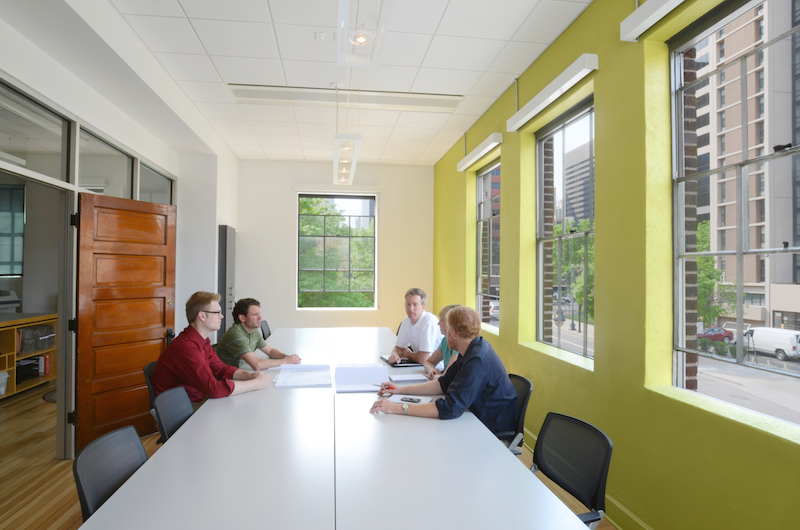
Hord Caplan Macht's Denver office includes meeting spaces with lots of daylight. Image: Courtesy HCM
However, one thing that surprised Massey was the emphasis that Fitwel’s scorecard places on “lactation rooms” for new Moms returning to the workforce after giving birth. “That was a real eye opener for us,” says Massey.
The next step toward Fitwel certification is the review process, and Massey expects a lot of give and take between her firm and the Center for Active Design to determine how to meet the criteria levels that HCM is willing to adopt.
Now bitten by the wellness bug, HCM also plans to incorporate Fitwel’s wellness standards into its designs for other clients’ projects “as much as possible,” says Massey. “Particularly active design.”
Arup, Structure Tone embrace wellness
While it’s still too early to say definitively, it appears that the wellness movement is slowly catching on with developers and AEC firms. For example, in late December, Arup opened a 16,333-sf office at 60 State Street in Boston, designed by Dyer Brown Architects, which is targeting the Silver level of the International WELL Building Institute’s WELL Building Standard, as well as the Platinum level of LEED v.4.
Structure Tone’s 82,000-sf corporate headquarters in New York City recently became the first project in that metro to receive Well Building Standard certification. It earned a Silver-level designation by installing more efficient mechanicals and lighting that maintains harmony with employees’ circadian rhythms. The office also offers point-of-access water filters, access to healthy foods, and discounts on bike-share and fitness center memberships.
Last year, Structure Tone formed a partnership with Delos, the real estate and tech firm that established the WELL Building Standard, in which Structure Tone agreed to accredit 150 employees through the WELL Accredited Professional program.
Related Stories
| Oct 3, 2012
Online program computes energy savings from green roofs; compares savings with other options
A free online tool can calculate the amount of energy savings from installation of a green roof. Portland State University‘s (PSU’s) online Green Roof Energy Calculator can be used for new or old structures.
| Oct 3, 2012
SERF, CSE launch a new accreditation for evaluation of building sustainability
The Society of Environmentally Responsible Facilities (SERF), a Chicago-based environmental building certification organization, and the Centre for Sustainability and Excellence (CSE) launched a new accreditation program that certifies professionals to evaluate buildings’ sustainable systems and practices according to SERF’s certification criteria.
| Oct 3, 2012
New version of Occupied Space Standard for DC microgrids in buildings released
The EMerge Alliance, an association leading the adoption of safe direct-current (DC) power distribution standards for commercial buildings, has updated the EMerge Alliance Occupied Space standard.
| Sep 26, 2012
Investment in greener data centers to reach $45 billion by 2016
Investment in data centers built to green standards will increase from the $17.1 billion predicted for this year to $45 billion by 2016, according to Pike Research.
| Sep 20, 2012
Reflective roofs could reduce rainfall in Arizona
Green standards may have to take into account the impact of reflective roofs on rainfall in the desert Southwest.
| Sep 20, 2012
Earth Advantage Institute offers green certification for small commercial buildings
Earth Advantage Institute announced a new green building certification aimed at new or substantially remodeled small commercial buildings built to green standards.
| Sep 14, 2012
NRCA University offers photovoltaic class
NRCA University will offer a class called “Photovoltaic Roof Systems: Energizing Your Business” Oct. 16 in Philadelphia.
| Aug 30, 2012
Public comment period is open for CRRC-1 standard
The CRRC-1 standard covers specimen preparation and test methods for measuring the initial and aged solar reflectance and thermal emittance of roofing products.
| Aug 30, 2012
Georgia drops LEED wood source standard on state projects
Currently, LEED green building standards only accept timber products certified by the Forest Stewardship Council (FSC).


